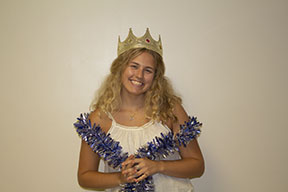So, what’s the deal with Astrology?
May 23, 2019
Since the beginning of time, humans have sought to discover what makes people who they are and what makes us different from one another. One of the most popular theories that help explain us is astrology: the study of the positions of the sun, stars, moons, and their relation to the traits of people. While it has gained a following of believers, there are those who dispute its accuracy, with their evidence lying in science.
Although astrology has gained popularity in recent years, its creation is credited to the Babylonians in the 4th century B.C, according to Ancient Orgins. They used astrological charts to predict terrestrial events and the weather patterns that were crucial to their kingdom. From Babylon, astrological belief spread to Greece and the Middle East, and then to the rest of the world. Its initial purpose of predicting the recurrence of seasons has since shifted to explaining different personality traits of a person.
Different traits and characteristics are assigned to a person solely on birth date. For example, people whose birthday falls between Oct. 23 and Nov. 21 are classified as Scorpios. According to Gary Goldschneider, author of “The Astrology of You and Me,” a Scorpio’s strengths are being “well-directed, protective, [and] powerful”, and their weaknesses are being “inflexible, unforgiving, [and] harsh.”
The different zodiac signs characterizations draw interest from many people, but also results in heated debate from detractors who cite that there is no scientific justification. Ideas such as confirmation bias and self-fulfilling prophecy have been continually used to support the fallacy of astrology. Simply put, some people search for certain information to help guide their life and make decisions, but this practice has been credited as irresponsible by scientists.
Moreover, scientists have failed to find a connection between scientific reasoning and astrology. Researchers have been unsuccessful trying to find any correlation between the two, and the majority were not successful. In 1981, Berkeley undergraduate Shawn Carlson began an experiment attempting to find a correlation between birth date and personality. Carlson tested the accuracy of predictions regarding the future with 28 different astrologers. Despite criticism from the opposition, Carlson found that the astrologers predictions about the future were the same as random chance.
However, astrology still continues to have a strong following of believers. According to the National Science Foundation, 51 percent of Americans ages 18 to 24 consider astrology to be “very” or “sort of” scientific, as of 2012.
The reasons why astrology is believed in depends on the person. Main reasons why people turn to astrology and their horoscopes are better self-understanding, as well as determining relationship compatibility. Astrology expert Maria DeSimone cites birth charts as being a key determinant in understanding your relationships with others.
“I’m fond of scouring the birth charts of my family, friends or colleagues whenever we experience patches of conflict or when I’d like deeper insight into their behavior,” DeSimone said in her article on tarot.com. “Not only do I see what their natural patterns are, but I can also compare my chart to theirs and discover how my own energy might not always harmonize with how they’re naturally suited to express themselves.”
Additionally, with so many uncertainties in life, astrology provides people with a sense of hope they can’t find elsewhere. Horoscopes provide people with a guide to how to handle their days and their lives in general.
So, whether you casually read your horoscope, fear Mercury’s retrograde, or think it’s all nonsense, astrology isn’t going anywhere. As its popularity continues among Millennials and Gen Zs, it is clear that astrology is here to stay.



















![Movie poster for '[Rec]" (2007).](https://www.lionnewspaper.com/wp-content/uploads/2023/04/rec-640x900.jpg)


